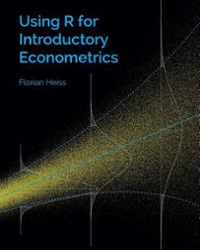Question
Consider the one-person production economy we call the Robinson Crusoe model. Robinson Crusoe is a profit-maximising producer, who produces a consumption good from labour inputs.
Consider the one-person production economy we call the Robinson Crusoe model. Robinson Crusoe is a profit-maximising producer, who produces a consumption good from labour inputs. He is also a utility-maximising consumer who owns the profit-maximising firm and provides his labour to the firm. He has a decreasing returns to scale production function x = L^ 1/4 . Crusoe gains utility over consumption of x and leisure R through the Cobb-Douglas utility function u(x,R) = a ln x+ (1a) ln R. He is endowed with 1 unit of time, which can either be spent on labour L or leisure R. Friday enters the economy and works for Crusoe, he is endowed with 1 unit of time as well.
There is no government in this country. Assume that the total output they generate is fixed, so that their incomes are fixed at w_c and w_f respectively. They decide to dedicate some of their incomes to a continuous public good. Their utility functions will now look like: u(x, R) = aln x + (1 a) lnG How much of the public good will Crusoe and Friday agree to purchase if they are operating independently of one another?
Step by Step Solution
There are 3 Steps involved in it
Step: 1

Get Instant Access to Expert-Tailored Solutions
See step-by-step solutions with expert insights and AI powered tools for academic success
Step: 2

Step: 3

Ace Your Homework with AI
Get the answers you need in no time with our AI-driven, step-by-step assistance
Get Started


